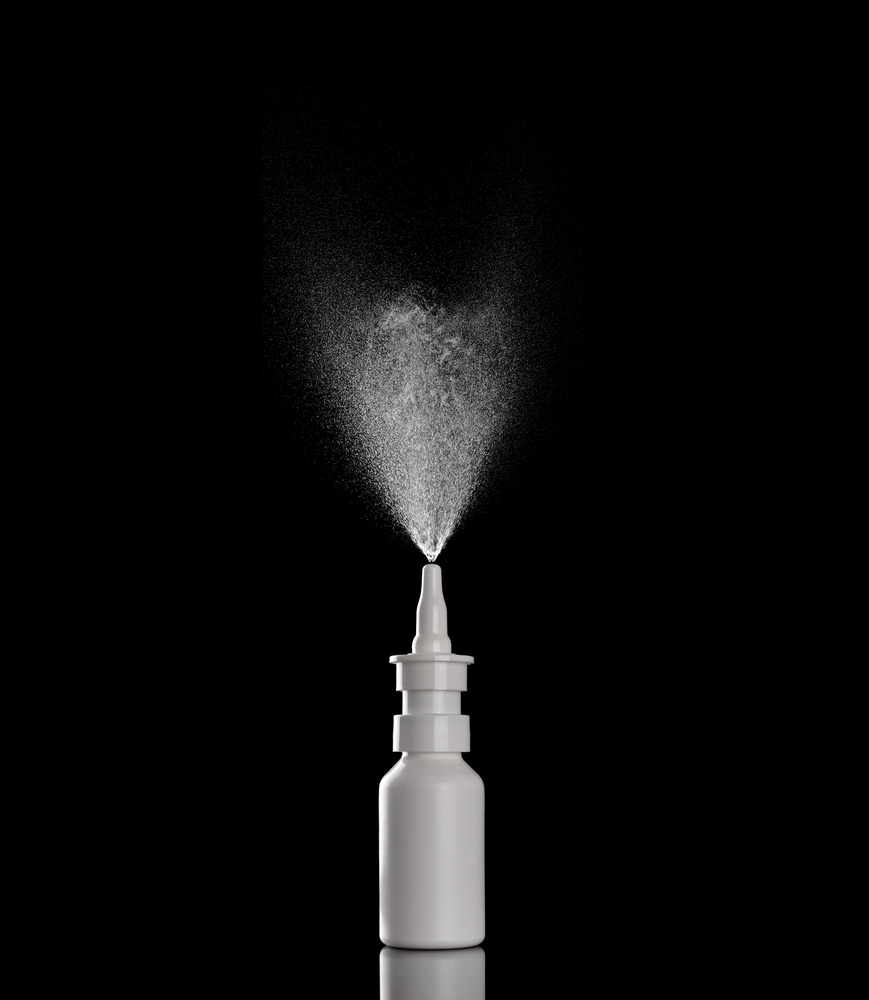Nasal Spray Seen as Easy and Effective Way to Deliver Glutathione, a Parkinson’s Therapy
Written by |

A pilot study found that a nasal spray may be a promising and quickly effective way of delivering glutathione (GSH), and of increasing GSH levels in the brain of Parkinson’s disease (PD) patients. The study, “Central nervous system uptake of intranasal glutathione in Parkinson’s disease,” was published in the journal NPJ Parkinson’s Disease.
GSH works as an antioxidant, and GSH deficiency has been reported in several central nervous system (CNS) disorders, including multiple sclerosis, Alzheimer’s, autism, and bipolar disease, as well as PD. In Parkinson’s, GSH deficiency is one of the earliest biochemical manifestations of the disease, leading to oxidative stress and nerve damage. Scientists, for this reason, think PD symptoms might be alleviated by GSH supplementation.
Oral administration of GSH is not very effective, however, because it is poorly absorbed through digestion and insufficient amounts cross the blood-brain barrier. Other approaches, such as oral GSH precursors or intravenous GSH, are promising, but they are invasive and not practical for home use. Furthermore, the inability to measure GSH levels in the CNS has markedly impaired the development of new trials focused on increasing GSH levels.
Researchers at Washington State University Health Sciences in Spokane, in collaboration with colleagues at Bastyr University Research Institute in Seattle, the Michael J. Crescenz VA Medical Center in Philadelphia, and the University of Pennsylvania School of Medicine, tested a new and noninvasive way of delivering GSH through nasal sprays, and used proton magnetic resonance spectroscopy (1H-MRS) to measure CNS uptake of GSH.
“The use of magnetic resonance spectroscopy to observe changes in chemical composition of the brain over time is novel, and glutathione happens to be one of the few antioxidants you can detect with this approach,” Jeannie Padowski, the study’s senior investigator, said in a news release.
The investigators examined 15 patients with mid-stage PD, who gave themselves a single dose of GSH nasal spray while inside the MRI scanner, and whose GSH levels in the CNS were measured before spray administration and over the hour that followed administration. Results showed that 45 minutes after the nasal spray was used, brain levels of GSH had increased 240 percent compared to levels prior to administration.
“Studies like this provide important information regarding how brain chemistry may change in response to disease and to therapeutic intervention,” Dr. Padowski said. “When successful, they can provide us with clues that could lead to the next treatment breakthrough.”
Researchers are now developing a longer study to evaluate the effects of GSH nasal therapy, given over three months, on PD symptoms.


